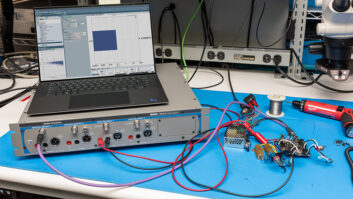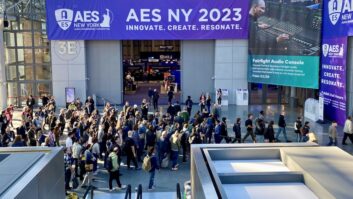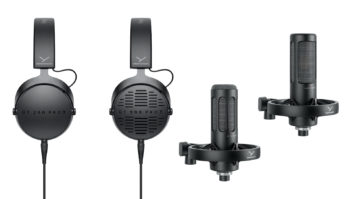By Clive Young.

New York (February 2, 2011)—Bruce Jackson, pro audio entrepreneur and FOH engineer to Elvis, Streisand, Springsteen and others, died Saturday, January 29 when the single-engine plane he was piloting crashed near Death Valley National Park.
Over the course of his career, Australian-born Jackson mixed the likes of Elvis Presley, Bruce Springsteen, Fleetwood Mac, Diana Ross, Johnny Cash, Stevie Wonder, Rod Stewart and the Faces, Barry White, Jefferson Airplane, Ozzy Osbourne, Jackson 5, Cat Stevens, Art Garfunkel, Lou Reed, and was Barbra Streisand’s sound designer/live engineer for 10 years. In more recent times, he was the opening and closing ceremonies audio director for the Olympic Games in Sydney and Canada.
A life-long tinkerer and entrepreneur, Jackson was not content to stay behind a mixing console. After co-founding Australian live sound powerhouse Jands Concert Production early in his career, Jackson left the company in 1970, moving to the U.S. to work with Clair Brothers Audio, where he quickly became the engineer of choice for Elvis, working with the artist from 1971 through his death in 1977. While the legendary performer cut a larger-than-life figure, Jackson wasn’t intimidated, as he recounted to Pro Sound News in an unpublished 2004 interview, recalling how he once went toe-to-toe with The King himself.
“I was doing a show,” he explained, “and Elvis Presley started picking on me from the stage. He couldn’t hear himself on the monitors around the back, so he says, ‘Ladies and gentlemen, I’d just like to stop now and talk to the sound engineer.’ So he starts complaining over the microphone, and it was just like, ‘Oh my God!’ It was very embarrassing, so I was mad; I wouldn’t talk to him, wouldn’t look at him–and then he kind of tried to be nice to make up and I still was mad! I quit! I said, ‘That’s it, I’m going to finish up at the end of the tour.’ Ultimately, he apologized–which was really unusual–and gave me a big hug and said ‘Sorry.’ From that point on, actually we had a whole different relationship, and I think that helped for years to come.”
Jackson went on from working with The King to The Boss, mixing Bruce Springsteen from 1977 through the end of the Born in the USA era. When not traveling, Jackson used time off between high-profile tours to help launch and distribute then-fledgling Fairlight. In the wake of that success, he founded Apogee Electronics, and later spearheaded a co-development project between Clair Brothers Audio and Lake that resulted in the Clair iO and Lake Technology’s Contour speaker controller. When Lake was sold to Dolby in 2004, he stayed with the company, bringing the Dolby Lake Processor to market in 2006.
That he would repeatedly combine his technological interests and entrepreneurial spirit was unsurprising, given that the seeds of his first company were planted at the age of 13, back in Sydney, Australia. He recalled for Pro Sound News, “I was building TV sets and all sorts of electronic bits and pieces when I was 13, and had a little workshop under our house. Then another guy and myself, we were involved in an AM radio station at school; we thought we were just covering a small area of Sydney near the school, but in fact, we had made such an efficient transmitter out of these old parts and the long antenna that we were actually transmitting all over Sydney–until we got busted, at least! Actually, that guy, Phil, and I, started Jands in Australia, which stands for ‘Jackson-and-Storey.’
“We were hobbyists that turned it into a little business, making lights and dimmers and guitar amps, and then we made these little column PAs, which is what the technology was at the time. I remember going out, doing shows, being backstage behind the bands and how great it sounded–the feeling of actually being there and what music felt like. I also remember how little of that same feeling actually got out into the audience, so I just developed an interest [in concert sound] that just grew and grew over the years.”
A longtime flying enthusiast, Jackson kept a 1978 Mooney Model M20J single-engine plane in Culver City, CA, and was alone aboard the craft when it crashed around 11PM on Saturday, roughly six miles from Furnace Creek in Death Valley National Park.
Respected and appreciated by all who knew him, the passing of Bruce Jackson is a sad moment for the pro audio industry, and he will be sorely missed.






